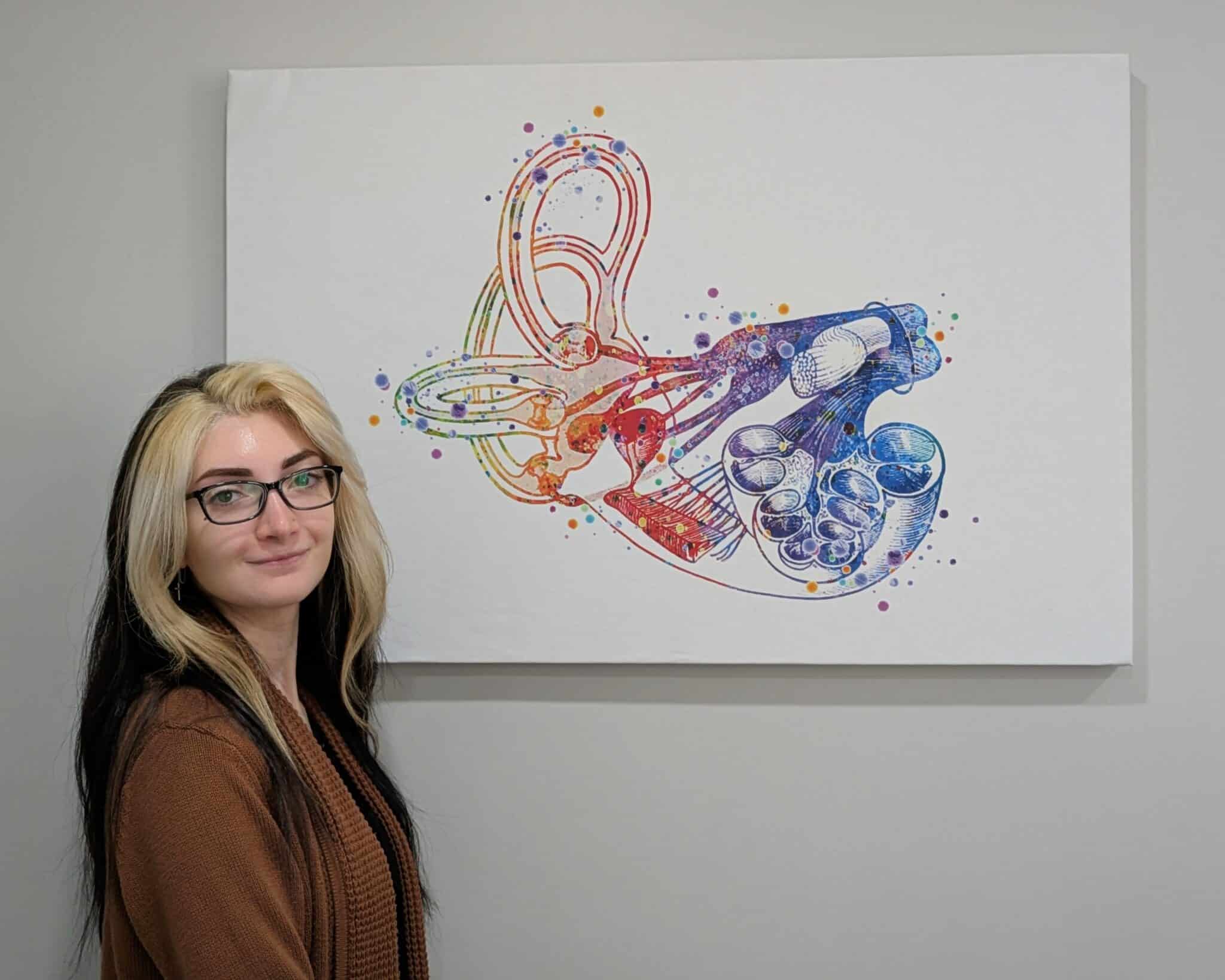Because tinnitus is a personalized condition, there is no universal “cure”. There are various treatment and management options depending on your perception of tinnitus and how it affects you. For individuals with hearing loss, the most appropriate treatment is hearing devices as the first step towards relief. 80%+ of the time, this is a very successful tinnitus relief strategy that also improves communication, social engagement, and quality of life improvement.

We are advocates of an educational counseling approach integrating principles from a variety of tinnitus treatment methods such as Cognitive Behavioral Therapy (CBT), Cognitive Habituation Tinnitus Therapy (CHaTT), Progressive Tinnitus Management (PTM), Tinnitus Activities Treatment (TAT), and Tinnitus Retraining Therapy (TRT). We will start your counseling during your first appointment. We will discuss your options and make a plan together.
There are tinnitus specific therapies that are also available. For those with normal hearing or those not ready to treat their hearing loss, other options will be discussed.
Sound Enrichment Therapy
Sounds are used for different purposes- reduce contrast, provide distraction or relaxation to reduce the perception and negative effects of tinnitus. Personal and prescriptive devices like hearing aids or consumer electronic devices that produce white noise, air conditioners, fans, soft music, etc. can all be employed.
There are a range of sound therapy options you can employ including audio files, sleep noise generators, tinnitus specific ear buds and more. These acoustic therapy methods are designed to habituate a tinnitus sufferer to their symptoms by reducing the contrast between the tonal sounds they hear and their environment. This allows the brain to blend and mask tinnitus sounds with natural and therapy added environmental noises.
Hearing Aids
A common treatment option utilizes hearing aids, as nearly 90 percent of those with tinnitus also experience hearing loss. Hearing aids are used to increase the sound landscape and reduce contrast with silence due to untreated hearing loss. These devices can also help distinguish one sound from another, improving communication and helping with focus and concentration difficulties. Many hearing aids come packaged with noise generators to enhance ambient sounds if hearing loss treatment alone does not reduce tinnitus.
Counseling
Counseling and cognitive behavioral therapy (CBT) can be practical in helping you manage your tinnitus symptoms by reducing the stress, anxiety and sleeplessness that are often associated with tinnitus. Our providers teach some methods to help you manage your tinnitus symptoms but may refer you for ongoing CBT.
Behavioral therapy can be very effective and provide a range of coping skills that can help you manage tinnitus symptoms and the associated stress and depression that often accompany the condition.
Lenire
Lenire is an evidence-based treatment device proven to soothe tinnitus that can be used from the comfort of your home with assistance from qualified healthcare professionals. The device plays sounds from headphones and provides gentle pulses to the tongue via a Tonguetip, which retrains your brain and helps you pay less attention to your tinnitus.
To learn more about this new and innovative treatment, visit our Lenire page.
Tinnitus Retraining Therapy
Similar in concept to acoustic therapy, tinnitus retraining therapy utilizes a portable sound generator that produces soft patterned tones to help desensitize the brain to the sounds of tinnitus.
One of the latest iterations of tinnitus retraining therapy is called acoustic neuromodulation. Using a combination of computer software, self-reporting and ongoing hearing tests, a specialist can create a custom tone profile designed to treat your specific tinnitus tones. The profile can be adjusted as needed over time.
Steroid Injections
Meniere’s disease has a number of symptoms, including hearing loss, tinnitus and vertigo that fluctuate due to increased fluid pressures in the ear organs. The resulting hearing loss and tinnitus can be treated with a series of injections of a potent steroid, which has an 85 percent chance of reducing symptoms.
Surgery
As many as 80 percent of those with a benign tumor of the cranial nerve that connects the inner ear and the brain known as an acoustic neuroma also suffer from tinnitus. The tinnitus may be resolved through a surgical removal of the acoustic neuroma. Please note, acoustic neuromas are rare. Many people will tinnitus go to the worst case scenario and this is not often the cause. Patterns of testing will rule out whether there is concern for this benign tumor.
Treatment Is Just a Phone Call Away
Treatment begins with a thorough tinnitus evaluation; it is the first step in determining the cause of your tinnitus when a physical cause is present. Though not all tinnitus symptoms can be treated, nearly every patient can benefit from management and therapy. You don’t have to settle for your symptoms. Contact us today for scheduling.
Call Elevate Audiology at (864) 442-5555 for more information or to schedule an appointment.
